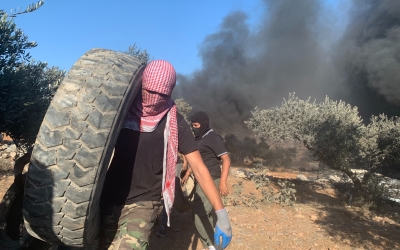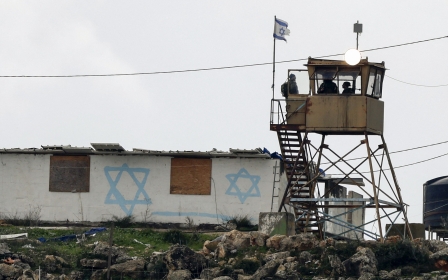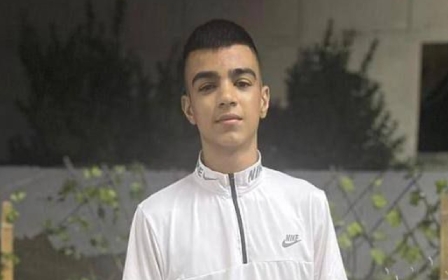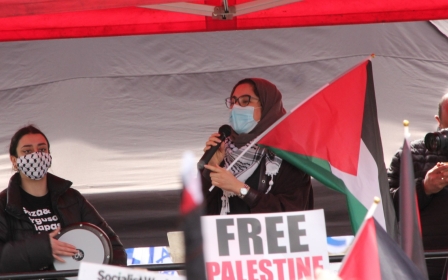West Bank: Israeli ministers lead settler march to evacuated outpost
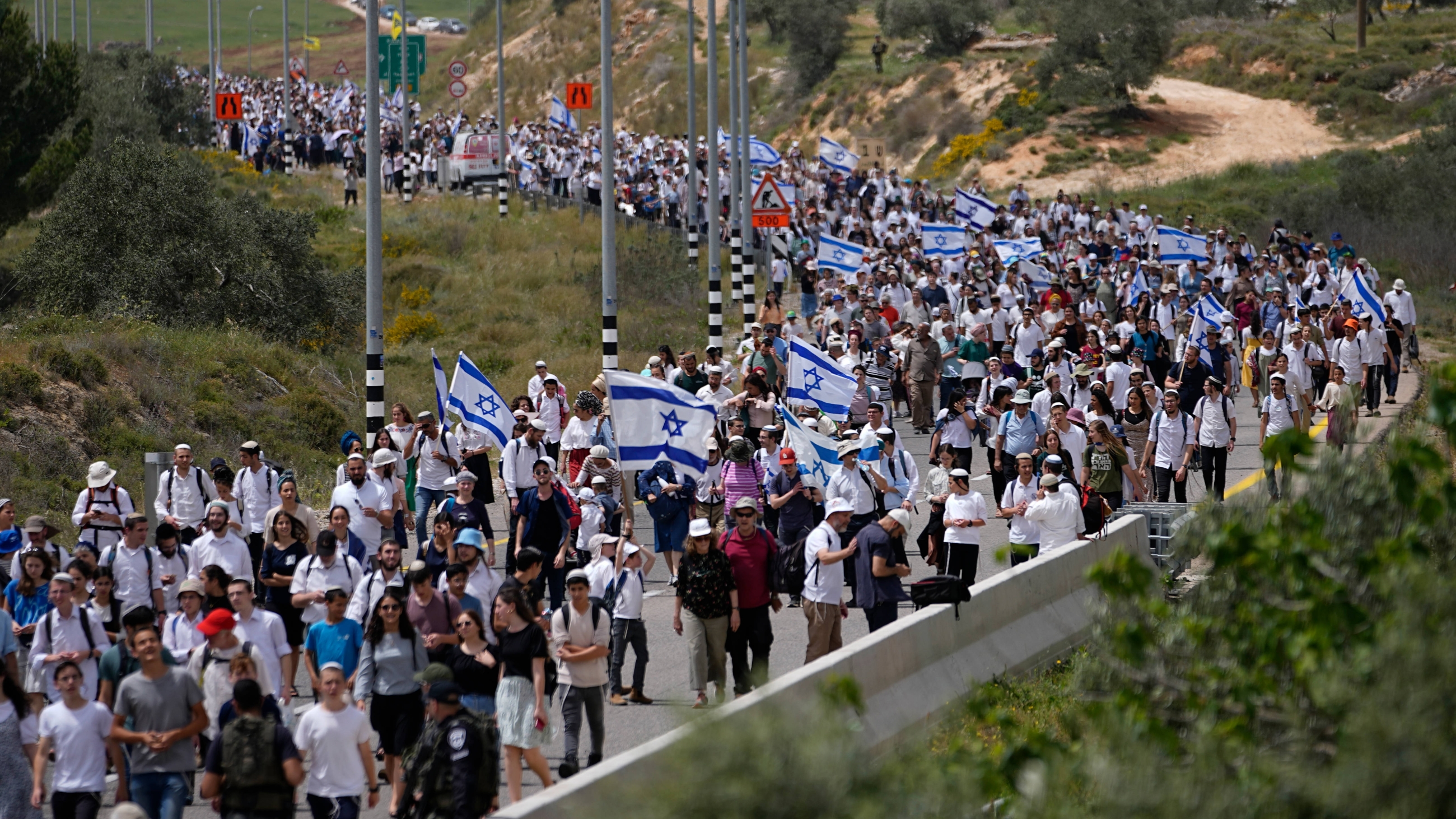
Prominent far-right Israeli government ministers and lawmakers led a massive pro-settlement march in the occupied West Bank on Monday, in what Palestinians described as a provocative endorsement of settlement expansion.
The march, secured by hundreds of Israeli soldiers, advanced towards the evacuated settlement outpost of Evyatar, near Huwwara in Nablus, the town which was set ablaze in February by hundreds of settlers.
Among the thousands of people who participated were seven ministers, including Finance Minister Bezalel Smotrich, National Security Minister Itamar Ben Gvir and National Missions Minister Orit Strock.
At least 20 MPs also joined, along with rabbis and settlement leaders, including members of the Nachala settlement movement and advocates for settlement expansion in the West Bank.
The Palestinian Ministry of Foreign Affairs condemned the march, which will infringe on Palestinians' freedom of movement in the area.
"[The march] is a dangerous escalation and provocation of the Palestinian people and an extension of the incitement calls of the Israeli right and the fascist right to deepen settlement at the expense of land," it said in a statement.
Ben Gvir, a settler himself, said the march was a "statement".
"This statement, that we are here, and we are marching toward the future – and that today, ministers in the Israeli government are saying this – is a clear statement. I hope the entire State of Israel understands this."
Translation: Thousands attend the Evyatar march, with the participation of seven ministers and 20 Knesset members.
Israeli settlers established Evyatar as an unofficial settlement outpost in May 2021 on Palestinian land in Jabal Sabih, south of Beita village in the Nablus governorate.
Following relentless Palestinian protests against the land grab, Israel struck a deal with settler leaders that saw dozens of settlers evacuated from the outpost in July of that year, leaving a military presence in the area.
The deal also allowed Israeli forces to keep about 50 caravan settler houses that were installed at the time, and said that settlers would "return" to the land when Israeli authorities designate it as "state-owned".
Smotrich, who is also responsible for Israel's civil administration in the West Bank, announced in February his intention to declare the land as state-owned land and turn it into an official Israeli settlement.
Nearly 700,000 settlers live in more than 250 settlements and outposts across the West Bank and East Jerusalem in violation of international law.
The Monday march is the first time settlers have been allowed back with the protection of the military.
It comes as tensions run high in Israel and Palestinian cities following Israeli attacks on worshippers in Al-Aqsa Mosque and continued settler incursions into the site during Ramadan.
Rockets were launched from Gaza, Lebanon, and Syria towards Israel last week in an apparent response to the Al-Aqsa attacks. At least two Israelis were wounded.
Israel responded by bombing all three fronts, leaving no casualties.
The number of shootings against Israeli targets in the West Bank has also risen, with two Israeli settlers killed and two soldiers wounded last week.
Amid the simmering tensions, Israeli security officials warned the march will put additional pressure on security forces "already thin" and having to contend with increasing security problems on multiple fronts.
“The march was approved by the relevant authorities, but we are already going through a terror wave - [the march] will require security forces to dedicate to it officers who are supposed to be on other missions,” an unnamed security official told the Israeli media outlet Channel 12 over the weekend.
According to Israeli media, an army battalion composed of up to 1,000 soldiers was assigned to protect the protest.
Israeli security sources also warned that such far-right marches may embolden Israeli settlers who are increasingly targeting Palestinians and their property in the West Bank and risk a further escalation in tensions.
Middle East Eye propose une couverture et une analyse indépendantes et incomparables du Moyen-Orient, de l’Afrique du Nord et d’autres régions du monde. Pour en savoir plus sur la reprise de ce contenu et les frais qui s’appliquent, veuillez remplir ce formulaire [en anglais]. Pour en savoir plus sur MEE, cliquez ici [en anglais].


